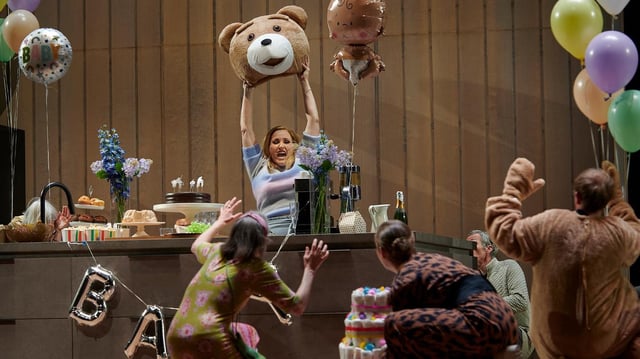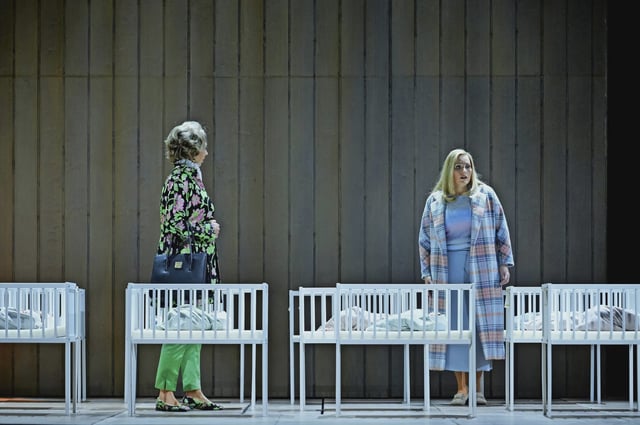Overview
- Tobias Kratzer's interpretation of 'Die Frau ohne Schatten' reimagines the opera with contemporary settings, such as urban apartments and therapy offices, which some critics found inconsistent with the original's themes.
- The Deutsche Oper Berlin's production is praised for its outstanding musical execution, led by conductor Donald Runnicles and a stellar vocal cast in the opera's challenging roles.
- Critics highlighted the opera's exploration of themes like family, sacrifice, and societal expectations, though some questioned the relevance of its gender and class dynamics in a modern context.
- Kratzer's staging introduces modern elements, including references to surrogacy and childcare, which sparked mixed reactions about their fit within the opera's symbolic narrative.
- Despite divisive opinions on the staging, the production's emotional depth and musical achievements left a strong impression on audiences and reviewers alike.

